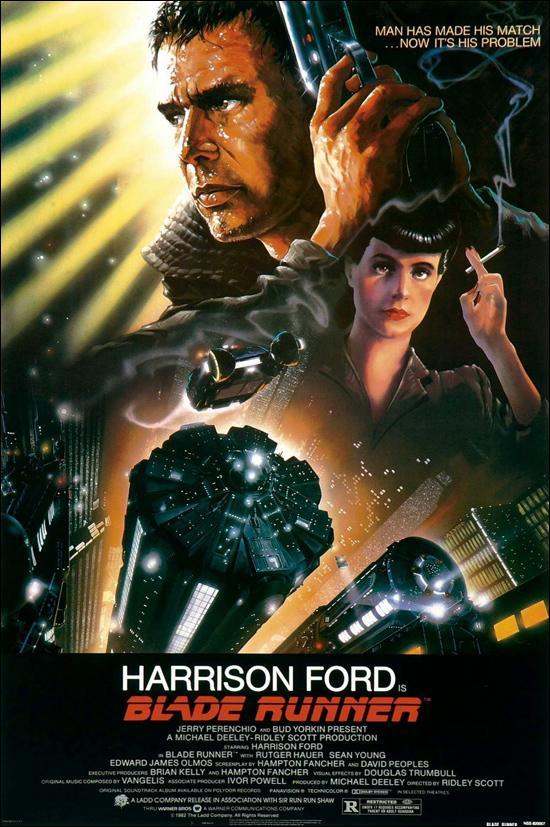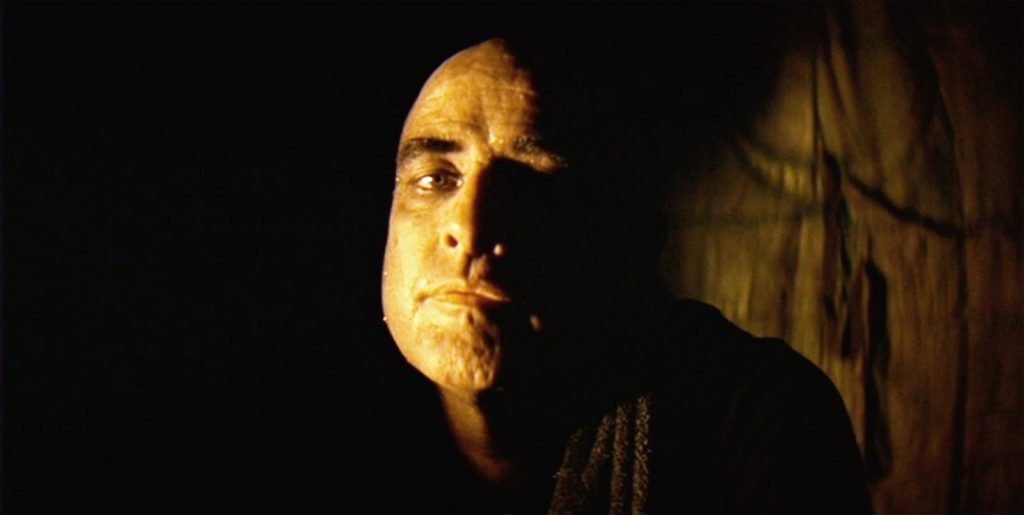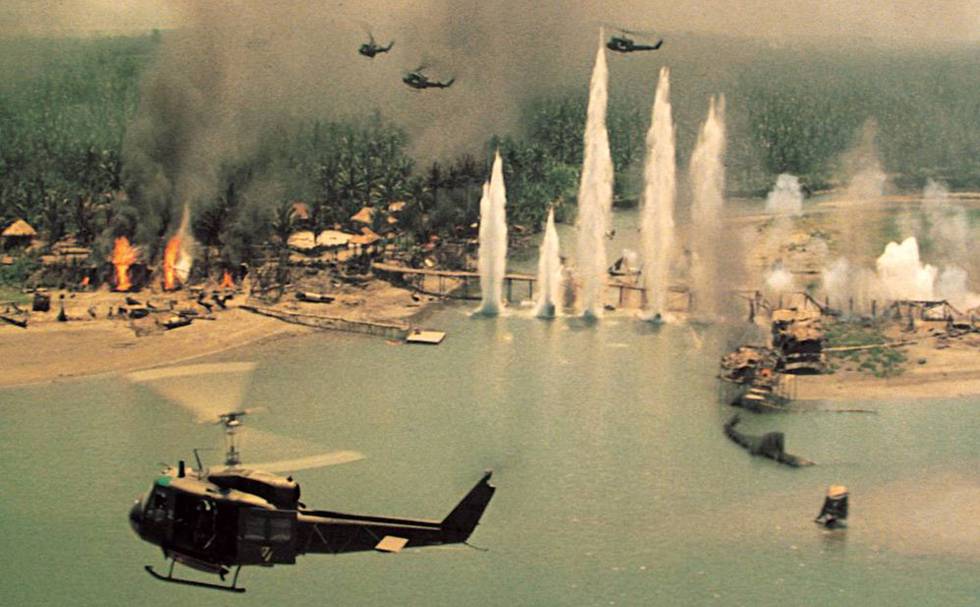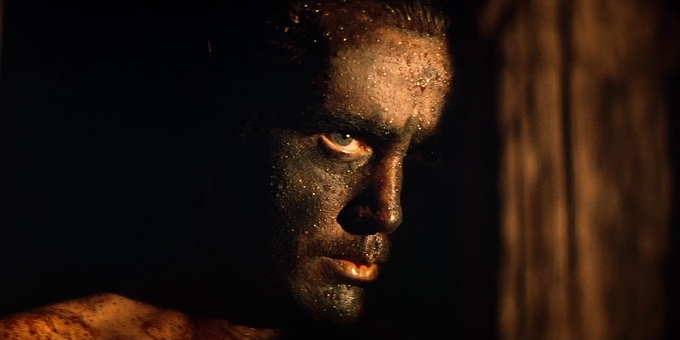
"I've seen things you people wouldn't believe. Attack ships on fire off
the shoulder of Orion. I watched C-beams glitter in the dark near the
Tannhäuser Gate. All those moments will be lost in time, like tears in
rain"
The future is something humans always think about. How will it be? Will it be better? Worse? Will there be flying cars?
Ridley Scott tried to give us his version of the future with Blade Runner, and it’s a very, very bleak one.
Blade Runner is a science fiction/dystopic/cyberpunk/tech-noir film loosely based on Do Androids Dream of Electric Sheep? by Philip K. Dick and directed by Ridley Scott. Set in 2019, the films deals with the hunting of androids created by the Tyrell Corporation known as replicants by the hard-boiled cop Rick Deckard (Harrison Ford).


Blade Runner is considered one of the most important science fiction movies in the history of cinema and it’s one of my favorites movies ever. BR shows a very depressive world; a place dominated by ads, neon lights, bright colors, advanced technology, tall buildings, flying vehicles, but also crime, discrimination, inequality, and hatred. A dystopia, and a critique on how the future will be.
Regarding the characters, on the one hand, we have our main character Deckard: A lonely, hard-boiled, noir-styled cop who is sent to “take out” (kill) replicants. Deckard is a man who does his job, because he has
to, but when he encounters sentient robots who are afraid of death,
everything changes. Should it matter that replicants suffer same as us? If
they are just machines, should we be concerned about
their feelings? Are their feelings and thoughts even real? Many
questions arise when facing replicants. If they are sentient,
are they equal? Inferior? Superior? Should they have rights? Ridley Scott
doesn’t plan on answering all of these questions, but to at least invites us to think
deeper about them. There are many messages inside the film, and it's up to the viewer to find and discuss them to get a deep insight about human nature and what it truly means to be human.

On the other hand, we have the replicants; synthetic humans who escaped from an off-world colony called Nexus-6 led by replicant Roy Batty (Rutger Hauer). The rest of his people are: Pris Stratton (Daryl Hannah), Zhora Salome (Joanna Cassidy) and Leon Kowalski (Brion James). Replicants seem to be cruel and cold-blooded killing machines. Why do they kill? They are dying and they are looking to survive one way or another. Is that it? Is this reason enough to justify their behavior? Is humanity to blame?

What I find interesting is the process of humanization and dehumanization that occurs to the characters. We have Deckard, the replicants, and also Rachael (Sean Young), a female replicant whom Deckard starts to fall in love with. All of them change throughout the film:
- Deckard is becoming more inhumane and cruel, and he begins to question his mission. He "retires" replicants, because he is told to do so, but what about his feelings? Is this really what he wants? Deckard starts to act more like a replicant than the replicants themselves.
- Roy at the end shows something that we didn't expect: Empathy. Empathy is a human trait, so, why did he do "that"? Isn't he a cold-blooded killing machine? Replicants aren't supposed to be like that... Is Roy a human in the end?
- Rachael doesn't know who she is and she seeks the truth of her own nature throughout the movie. Deckard tries to help her by making her choose and act to prove she really is "human". She has feelings for Deckard, but if she is a replicant, are those feelings real? If they are, doesn't that make her as human as the rest of us?

Trying to answer all of these in BR with a heavy amount of visual imagery and symbolisms is hard. Even more so, because of its slow-driven narrative, obscure setting, morally ambiguous characters, oppressive atmosphere and the amazing score made by Vangelis.
Blade Runner is a dystopia, a very dark insight into the future if we keep going through this path. At least 2019 is not that bad for us as in the film, but it is a cautionary tale that a change is needed in our society to reach towards greatness. We are humans, we live, we breathe, we love, but the more we keep going forward, the more robotic we become.

On the other hand, we have the replicants; synthetic humans who escaped from an off-world colony called Nexus-6 led by replicant Roy Batty (Rutger Hauer). The rest of his people are: Pris Stratton (Daryl Hannah), Zhora Salome (Joanna Cassidy) and Leon Kowalski (Brion James). Replicants seem to be cruel and cold-blooded killing machines. Why do they kill? They are dying and they are looking to survive one way or another. Is that it? Is this reason enough to justify their behavior? Is humanity to blame?

What I find interesting is the process of humanization and dehumanization that occurs to the characters. We have Deckard, the replicants, and also Rachael (Sean Young), a female replicant whom Deckard starts to fall in love with. All of them change throughout the film:
- Deckard is becoming more inhumane and cruel, and he begins to question his mission. He "retires" replicants, because he is told to do so, but what about his feelings? Is this really what he wants? Deckard starts to act more like a replicant than the replicants themselves.
- Roy at the end shows something that we didn't expect: Empathy. Empathy is a human trait, so, why did he do "that"? Isn't he a cold-blooded killing machine? Replicants aren't supposed to be like that... Is Roy a human in the end?
- Rachael doesn't know who she is and she seeks the truth of her own nature throughout the movie. Deckard tries to help her by making her choose and act to prove she really is "human". She has feelings for Deckard, but if she is a replicant, are those feelings real? If they are, doesn't that make her as human as the rest of us?

Blade Runner is a dystopia, a very dark insight into the future if we keep going through this path. At least 2019 is not that bad for us as in the film, but it is a cautionary tale that a change is needed in our society to reach towards greatness. We are humans, we live, we breathe, we love, but the more we keep going forward, the more robotic we become.



